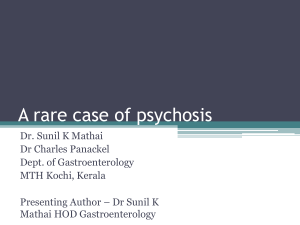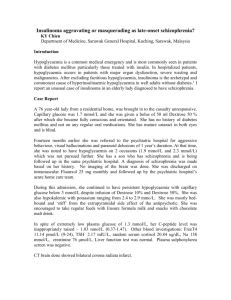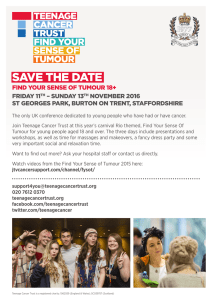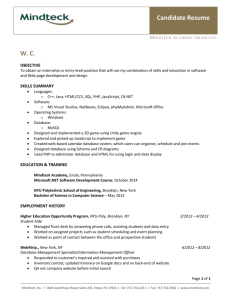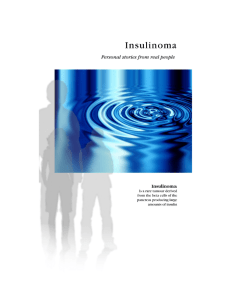Facebook Helped us cope with our illness
advertisement
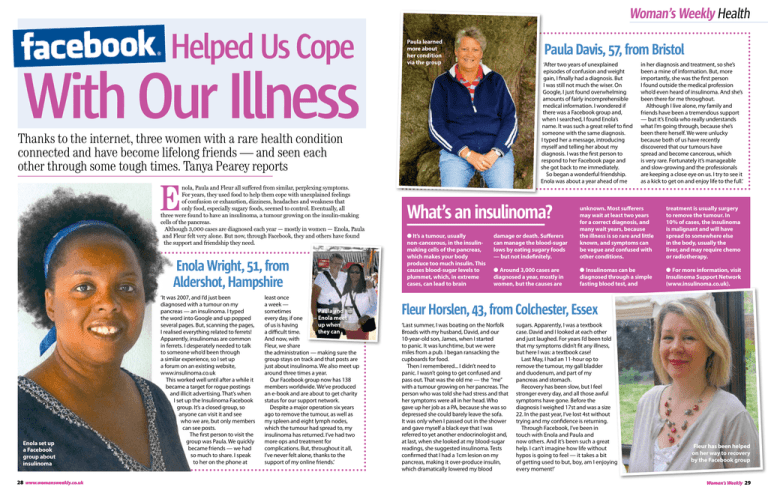
Woman’s Weekly Health Helped Us Cope With Our Illness Paula learned more about her condition via the group Paula Davis, 57, from Bristol ‘After two years of unexplained episodes of confusion and weight gain, I finally had a diagnosis. But I was still not much the wiser. On Google, I just found overwhelming amounts of fairly incomprehensible medical information. I wondered if there was a Facebook group and, when I searched, I found Enola’s name. It was such a great relief to find someone with the same diagnosis. I typed her a message, introducing myself and telling her about my diagnosis. I was the first person to respond to her Facebook page and she got back to me immediately. So began a wonderful friendship. Enola was about a year ahead of me Thanks to the internet, three women with a rare health condition connected and have become lifelong friends — and seen each other through some tough times. Tanya Pearey reports E nola, Paula and Fleur all suffered from similar, perplexing symptoms. For years, they used food to help them cope with unexplained feelings of confusion or exhaustion, dizziness, headaches and weakness that only food, especially sugary foods, seemed to control. Eventually, all three were found to have an insulinoma, a tumour growing on the insulin-making cells of the pancreas. Although 3,000 cases are diagnosed each year — mostly in women — Enola, Paula and Fleur felt very alone. But now, through Facebook, they and others have found the support and friendship they need. Enola Wright, 51, from Aldershot, Hampshire Enola set up a Facebook group about insulinoma 28 www.womansweekly.co.uk ‘It was 2007, and I’d just been diagnosed with a tumour on my pancreas — an insulinoma. I typed the word into Google and up popped several pages. But, scanning the pages, I realised everything related to ferrets! Apparently, insulinomas are common in ferrets. I desperately needed to talk to someone who’d been through a similar experience, so I set up a forum on an existing website, www.insulinoma.co.uk This worked well until after a while it became a target for rogue postings and illicit advertising. That’s when I set up the Insulinoma Facebook group. It’s a closed group, so anyone can visit it and see who we are, but only members can see posts. The first person to visit the group was Paula. We quickly became friends — we had so much to share. I speak to her on the phone at least once a week — Paula and sometimes Enola meet every day, if one up when of us is having they can a difficult time. And now, with Fleur, we share the administration — making sure the group stays on track and that posts are just about insulinoma. We also meet up around three times a year. Our Facebook group now has 138 members worldwide. We’ve produced an e-book and are about to get charity status for our support network. Despite a major operation six years ago to remove the tumour, as well as my spleen and eight lymph nodes, which the tumour had spread to, my insulinoma has returned. I’ve had two more ops and treatment for complications. But, throughout it all, I’ve never felt alone, thanks to the support of my online friends.’ What’s an insulinoma? ● It’s a tumour, usually non-cancerous, in the insulinmaking cells of the pancreas, which makes your body produce too much insulin. This causes blood-sugar levels to plummet, which, in extreme cases, can lead to brain in her diagnosis and treatment, so she’s been a mine of information. But, more importantly, she was the first person I found outside the medical profession who’d even heard of insulinoma. And she’s been there for me throughout. Although I live alone, my family and friends have been a tremendous support — but it’s Enola who really understands what I’m going through, because she’s been there herself. We were unlucky because both of us have recently discovered that our tumours have spread and become cancerous, which is very rare. Fortunately it’s manageable and slow-growing and the professionals are keeping a close eye on us. I try to see it as a kick to get on and enjoy life to the full.’ damage or death. Sufferers can manage the blood-sugar lows by eating sugary foods — but not indefinitely. unknown. Most sufferers may wait at least two years for a correct diagnosis, and many wait years, because the illness is so rare and little known, and symptoms can be vague and confused with other conditions. treatment is usually surgery to remove the tumour. In 10% of cases, the insulinoma is malignant and will have spread to somewhere else in the body, usually the liver, and may require chemo or radiotherapy. ● Around 3,000 cases are diagnosed a year, mostly in women, but the causes are ● Insulinomas can be diagnosed through a simple fasting blood test, and ● For more information, visit Insulinoma Support Network (www.insulinoma.co.uk). Fleur Horslen, 43, from Colchester, Essex ‘Last summer, I was boating on the Norfolk Broads with my husband, David, and our 10-year-old son, James, when I started to panic. It was lunchtime, but we were miles from a pub. I began ransacking the cupboards for food. Then I remembered... I didn’t need to panic. I wasn’t going to get confused and pass out. That was the old me — the “me” with a tumour growing on her pancreas. The person who was told she had stress and that her symptoms were all in her head. Who gave up her job as a PA, because she was so depressed she could barely leave the sofa. It was only when I passed out in the shower and gave myself a black eye that I was referred to yet another endocrinologist and, at last, when she looked at my blood-sugar readings, she suggested insulinoma. Tests confirmed that I had a 1cm lesion on my pancreas, making it over-produce insulin, which dramatically lowered my blood sugars. Apparently, I was a textbook case. David and I looked at each other and just laughed. For years I’d been told that my symptoms didn’t fit any illness, but here I was: a textbook case! Last May, I had an 11-hour op to remove the tumour, my gall bladder and duodenum, and part of my pancreas and stomach. Recovery has been slow, but I feel stronger every day, and all those awful symptoms have gone. Before the diagnosis I weighed 17st and was a size 22. In the past year, I’ve lost 4st without trying and my confidence is returning. Through Facebook, I’ve been in touch with Enola and Paula and now others. And it’s been such a great help. I can’t imagine how life without hypos is going to feel — it takes a bit of getting used to but, boy, am I enjoying every moment!’ Fleur has been helped on her way to recovery by the Facebook group Woman’s Weekly 29
